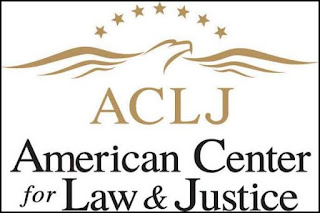Just as in 1968, racial tension in the U.S. has been rampant these last few months in 2020, and, again, just like back then, one presidential candidate is calling for LAW AND ORDER. But what is the most pressing need for People of Color, and how can the current unrest best be addressed?
Are Reparations the Answer?
There have been strong calls by some for the
U.S. government to provide reparations to the descendants of Black people who
were formerly enslaved. In his long, oft-cited June 2014 piece in The Atlantic,
Ta-Nehisi Coates makes a strong appeal for reparations.
If it could have been arranged, this month
would have been a fitting time for reparations to be paid, for it was 170 years
ago on September 18, 1850, that the Fugitive Slave Act was passed by the U.S.
Congress, making the enslavement of Blacks in the South even more secure—and
more odious.
Harriet Tubman escaped slavery in 1849, but
then her daring work freeing other slaves by means of the Underground Railroad
was made even more dangerous and challenging after the Fugitive Slave Act took
effect the next year.
But there are many problems with reparations:
how could it be satisfactorily determined who is eligible for reparations after
all these years, and how could adequate funding be provided? With the massive
expenditures on covid-19 relief this year, there is no possibility of funding
being provided now, even if there were the will to do so.
Reparations are most likely not the answer to the problem of racial unrest in this country for the foreseeable future—or ever.
Is Friendship the Answer?
There has been much talk over the last sixty
years about the need for racial reconciliation and for eliminating the
segregation of Blacks and whites.
Near the beginning of “A Segregated Church or a
Beloved Community,” the sixth chapter in his 2016 book America’s Original
Sin, Jim Wallis recounts how in the 1950s Martin Luther King, Jr., sadly
said, “I am [ashamed] and appalled that eleven o’clock on Sunday morning is the most segregated hour in Christian America.”
Then Wallis went on to lament that still now “the
racial segregation of US churches is nothing short of scandalous and sinful”
(Kindle ed., pp. 97, 98).
While I strongly believe that churches should
never be segregated because of unwillingness to accept people of different
races/ethnicities and have long regretted not being a part of a church here in
the U.S. with a significant number of People of Color, I now think that
integration is not the primary goal we whites should seek.
Last month, Jennifer Harvey, a religion
professor at Drake University in Iowa, wrote a powerful opinion
piece for CNN. While her piece was largely in
support of reparations, I was struck by her disparagement of all the work that
has been done for “racial reconciliation” and the emphasis in recent years on
“diversity and inclusion.”
Harvey insists that “we need to be clear that
friendships are never a substitute for justice.”
Thus, while definitely important,
friendship/reconciliation is not the primary answer to the problem of racial
unrest abroad in the land.
The Need for Justice/Equity
In her highly acclaimed book Caste (2020), Isabel Wilkerson writes, “We are
not personally responsible for what people who look like us did centuries ago.
But we are responsible for what good or ill we do to people alive with us today”
(p. 387).
Accordingly,
rather than focusing on reparations for the past, what is needed most now is
the creation of a more just, equitable society.
If
we whites want to help People of Color (PoC) have better lives in this
still-racist society, we need to focus most on legislation and law enforcement
that, among other things, combats police brutality against PoC; corrects the
inequities in the prison justice system; and eliminates discrimination in
housing and discriminatory finance charges for both houses and cars.
To
do this we can support various nationwide organizations, such as the ACLU, for
example, which urges us to Demand Justice Now.







.jpg)